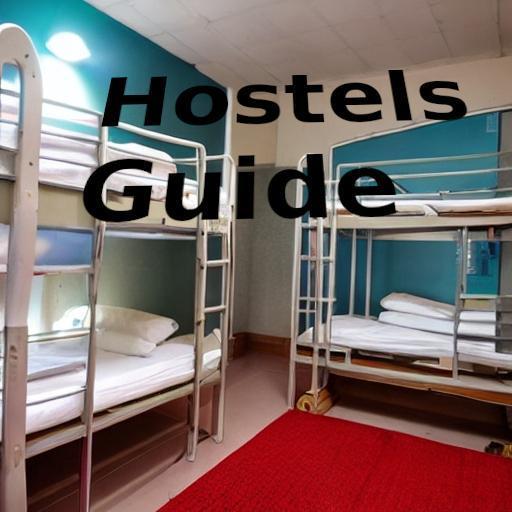








Roots of Camaraderie:
The concept of hostels can be traced back to early 20th-century Germany, where schools and youth organizations provided low-cost accommodations for students and travelers. These humble lodgings were characterized by a communal spirit, emphasizing shared spaces and affordability.
Rise of the Backpacker Culture:
In the mid-20th century, the rise of the backpacker culture gave hostels a global platform. As young travelers sought affordable and social accommodations, hostels emerged as the preferred choice, fostering an environment where individuals from diverse backgrounds could come together and share their journeys.
Europe Leads the Way:
Hostels gained prominence in Europe during the 1960s and 1970s, with networks like Hostelling International (HI) establishing a standard for budget accommodations. The European hostel experience became synonymous with dormitory-style rooms, communal kitchens, and a vibrant atmosphere that encouraged cultural exchange.
Global Spread and Diversification:
The late 20th century witnessed the global spread of hostels, reaching far beyond their European origins. From bustling Asian cities to remote South American villages, hostels became an integral part of the travel landscape. The concept diversified, with boutique hostels offering unique experiences while maintaining budget-friendly principles.
Technology and the Digital Age:
The 21st century saw hostels adapting to the digital age, with online booking platforms making it easier for travelers to find and reserve accommodations. Hostel culture evolved to include modern amenities, private rooms, and themed spaces, catering to a broader demographic while retaining the social spirit that defines the hostel experience.
A hostel is a type of budget accommodation that provides shared accommodation in dormitory-style rooms or private rooms, often with shared bathroom facilities. Hostels are popular among backpackers, students, and budget-conscious travelers who are looking for an affordable place to stay.
In addition to providing accommodation, many hostels offer social spaces such as lounges, kitchens, and communal areas where guests can socialize and meet other travelers. Some hostels also offer amenities such as free Wi-Fi, breakfast, and laundry facilities.
Hostels can be found in a variety of locations, including cities, rural areas, and tourist destinations. They are typically less expensive than hotels or resorts and provide a more casual and informal atmosphere.
One of the key characteristics of a hostel is the emphasis on community and social interaction. This is achieved through shared spaces, communal activities, and the opportunity to meet other travelers. Hostels also tend to be more environmentally conscious than other types of accommodation, with many promoting sustainable travel practices and reducing waste.
Hostels are useful for people nowadays around the world in several ways:
Affordable Accommodation: Hostels provide budget-friendly accommodation options for travelers who are looking to save money on their travels. This is particularly useful for backpackers, students, and budget-conscious travelers who are looking for cheap and convenient places to stay.
Socializing Opportunities: Hostels provide a socializing environment for travelers. With shared dorm rooms, communal spaces, and group activities, hostels provide an excellent opportunity for solo travelers to meet new people, make friends, and share experiences.
Convenience: Hostels are often located in the heart of the city, making them convenient for travelers who want to explore the local area. Many hostels also offer free or low-cost amenities such as Wi-Fi, breakfast, and laundry facilities.
Cultural Experience: Hostels provide a unique cultural experience, allowing travelers to immerse themselves in the local culture and traditions. Many hostels organize cultural events and activities, such as food tours, language classes, and cultural workshops, which allow travelers to learn about the local customs and traditions.
Sustainability: Hostels are often more environmentally sustainable than other types of accommodation, as they tend to use fewer resources and produce less waste. Many hostels also promote sustainable travel practices, such as using public transportation, reducing plastic waste, and supporting local businesses.
Hostels provide a cost-effective, social, and culturally immersive experience for travelers, making them an increasingly popular choice for people around the world.
Pack a pair of earplugs: Hostels are often social places where people may stay up late or wake up early, so a pair of earplugs can help you get a good night's sleep.
Bring a combination lock: Hostels often have lockers to store your valuables, but you'll need to bring your own lock. A combination lock is a good choice, as you won't need to worry about losing a key.
Be respectful of your roommates: Remember that you'll be sharing a room with other travelers, so be considerate and respectful of their space and belongings. Keep your noise level down, and try not to hog the bathroom.
Keep your valuables secure: While many hostels have lockers or safe deposit boxes, it's always a good idea to keep your valuables with you. Consider using a money belt or pouch to keep your passport, money, and other important items on you at all times.
Get to know other travelers: Hostels are a great place to meet other travelers from around the world. Take advantage of the communal spaces and strike up conversations with other guests. You never know who you might meet or what you might learn.
Keep an open mind: Hostels can be a bit different from hotels, with shared bathrooms and dorm-style rooms. Embrace the experience and keep an open mind, and you're sure to have a great time.
There have been many funny incidents that have occurred in hostels around the world. Here are a few examples:
The hostel provided earplugs for guests to drown out the sound of their own snoring.
A guest accidentally walked into the wrong dorm room and climbed into someone else's bunk. The next morning, the rightful owner of the bunk returned to find a stranger fast asleep next to them.
One hostel had a resident cat that liked to curl up in guests' beds and refused to move, resulting in some amusing sleeping arrangements.
A group of travelers at a hostel in Thailand decided to have a "family dinner" and cook a big meal together. However, they accidentally used a spicy seasoning that caused everyone to start coughing and crying, leading to a hilarious and memorable evening.
A hostel in Amsterdam had a sign in the bathroom that read "Please do not smoke while using the toilet." Apparently, this was a common occurrence.
It is important to thoroughly research hostels before booking a stay, including reading reviews from previous guests, checking the hostel's website for information on facilities and services, and considering the hostel's location and safety measures. It is also recommended to book through reputable websites or booking platforms and to have a backup plan in case the hostel does not meet expectations.
There are many hostels around the world that are famous for their unique features or popularity among travelers. Here are a few examples:
Generator Hostels: Generator is a chain of hostels located in several major cities around the world, including London, Paris, Berlin, Amsterdam, and Miami. They are known for their stylish design and social atmosphere, with facilities such as bars, cafes, and lounges.
HI Hostels: Hostelling International (HI) is a global network of hostels with over 3,500 properties in 89 countries. They are known for their affordability, community-oriented atmosphere, and commitment to sustainable tourism.
Clink78 Hostel: Clink78 is a hostel located in a historic courthouse in London, England. It is famous for its unique accommodations, including rooms that were once jail cells, and for hosting events such as live music and comedy shows.
Wombat's Hostels: Wombat's is a chain of hostels with locations in several European cities, including Berlin, Budapest, Vienna, and Munich. They are known for their spacious and modern facilities, as well as their social atmosphere and organized events.
St. Christopher's Inn: St. Christopher's Inn is a chain of hostels located in several European cities, including London, Paris, Amsterdam, and Barcelona. They are known for their lively atmosphere, bars and restaurants, and organized events such as pub crawls and city tours.
These are just a few examples of famous hostels around the world, but there are many others that offer unique experiences and attract travelers from all over the globe.
In the rich tapestry of travel history, hostels stand as dynamic hubs of cultural exchange and budget-friendly exploration. From their modest beginnings in Germany to the farthest corners of the globe, hostels have not only provided affordable lodgings but have also woven a global network of camaraderie among those who seek adventure on a shoestring.
Have a good place to stay!

We use cookies
We use cookies and other tracking technologies to improve your browsing experience on our website, to show you personalized content and targeted ads, to analyze our website traffic, and to understand where our visitors are coming from. Privacy Policy.
